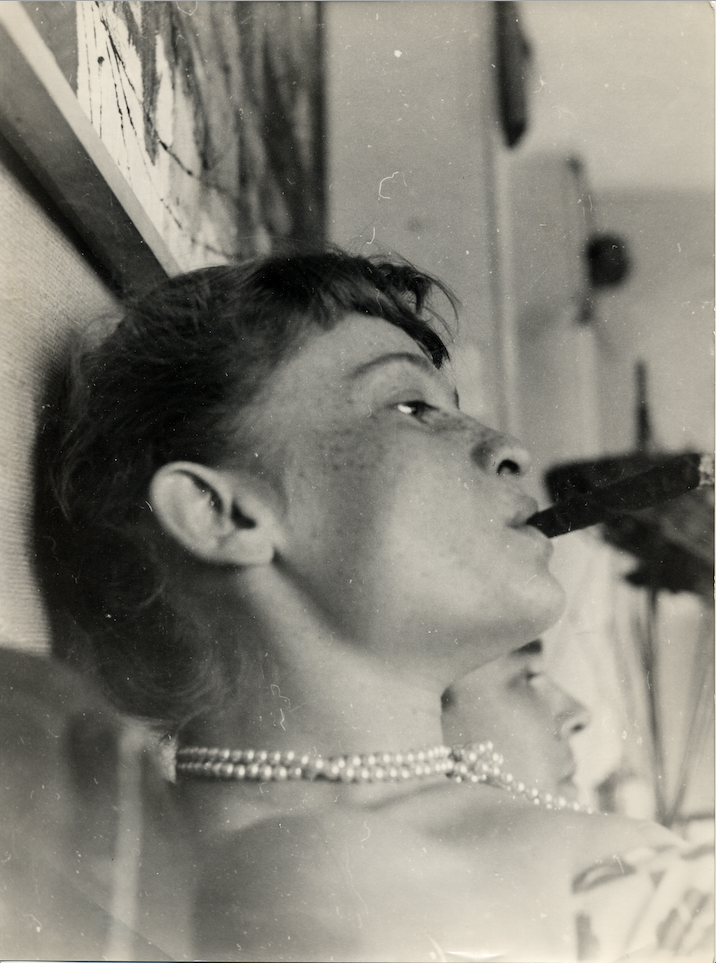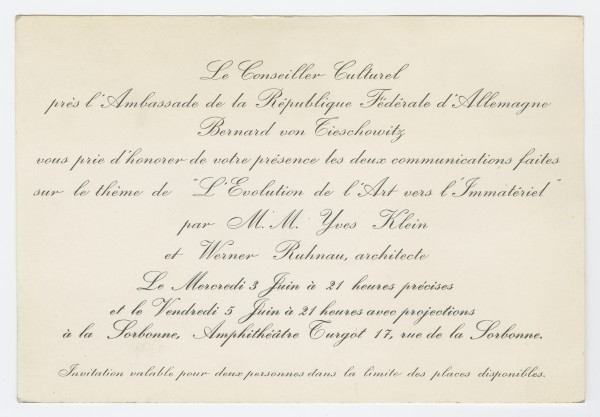E.R. - En fait, toutes les justifications intellectuelles qu’il essayait d’apporter ne m’intéressaient pas. C’était cela que j’essayais de démontrer. Parce qu’il me semblait beaucoup plus important d’aller directement à la source vive, à la nature spirituelle de son art.
P.U. - À l’expérience ?
E.R. - Oui, à travers l’expérience. L’expérience étant quelque chose comme une projection aussi pure que possible de l’esprit qui animait tout son art, et Dieu sait si ça l’était alors. Il n’y avait pas besoin de grande explication. On peut faire toutes les gloses qu’on voudra, l’œuvre d’Yves Klein n’a besoin de rien de tout ça. Elle est là, et telle qu’elle est elle est évidente et manifeste. D’ailleurs c’est d’autant plus remarquable qu’à l’époque on pouvait penser que c’était sa personnalité qui portait son art. Mais pas du tout. Maintenant ça fait plus de quarante ans qu’il a disparu et son art est tout aussi vivant, et parle directement, en dépit de tout ce qu’on peut écrire dessus et dont on peut très bien se passer. Et c’est très rare. Je pense par exemple que l’œuvre d’Arman non seulement supporte mieux, mais à beaucoup plus besoin de ce support intellectuel, sinon d’explication ; d’être reliée peut-être à un phénomène socio-culturel, etc.,etc., la transmutation du déchet. L’œuvre d’Arman le supporte. Mais l’œuvre d’Yves Klein, non. Elle n’a pas besoin de tout ça. On regarde les croquis sur l’architecture de l’air : on reste bouche bée. Mais c’est merveilleux. On regarde un monochrome : ah, c’est fantastique. Les empreintes : c’est magnifique. C’est une œuvre qui est là, qui s’impose d’elle- même, qui n’a besoin de rien d’autre.
extrait de l'interview d'Éliane Radigue par Philippe Ungar, 2007
| Durée | 00:02:03 |

